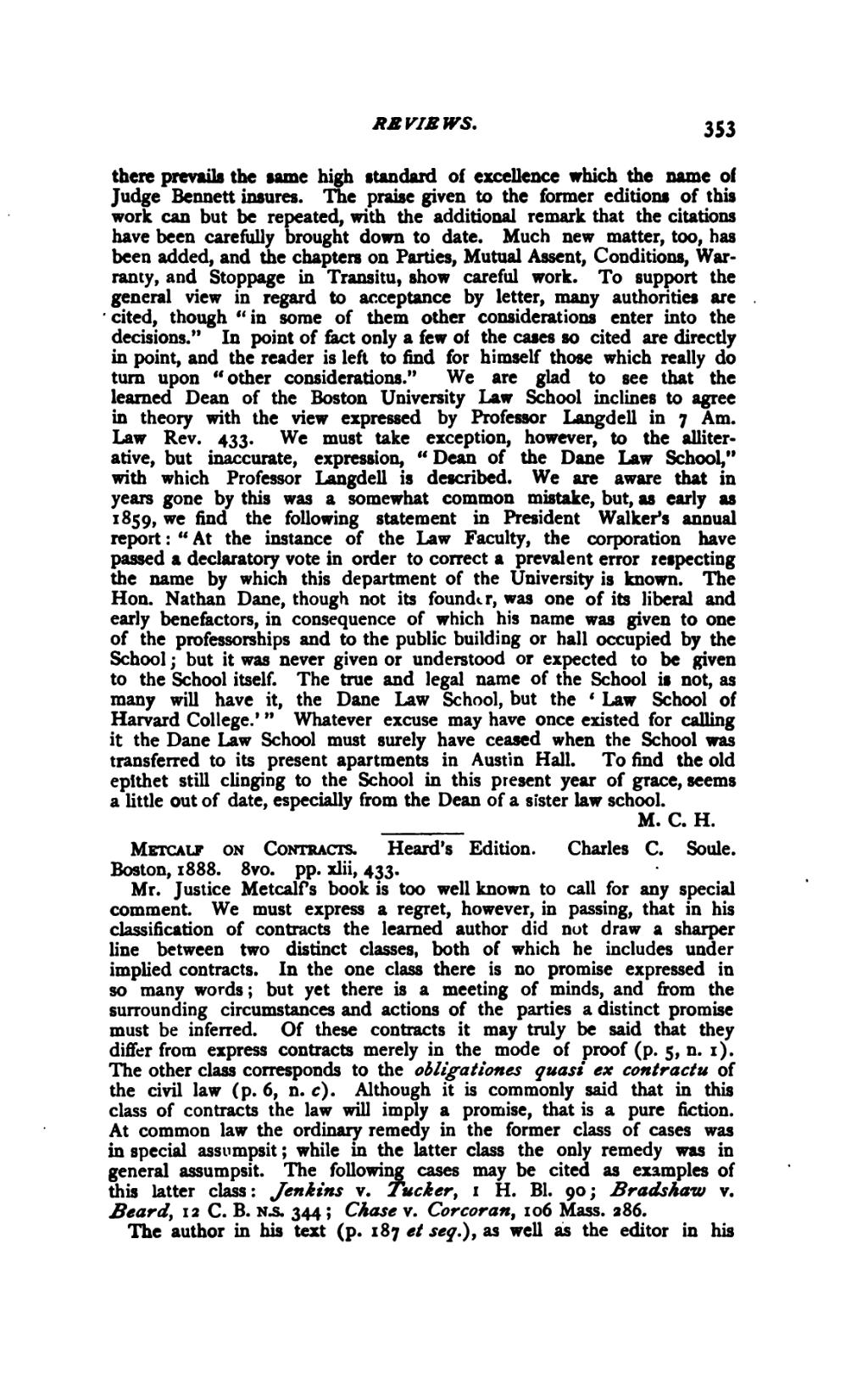there prevails the same high standard of excellence which the name of Judge Bennett insures. The praise given to the former editions of this work can but be repeated, with the additional remark that the citations have been carefully brought down to date. Much new matter, too, has been added, and the chapters on Parties, Mutual Assent, Conditions, Warranty, and Stoppage in Transitu, show careful work. To support the general view in regard to acceptance by letter, many authorities are cited, though “in some of them other considerations enter into the decisions.” In point of fact only a few of the cases so cited are directly in point, and the reader is left to find for himself those which really do turn upon “other considerations.” We are glad to see that the learned Dean of the Boston University Law School inclines to agree in theory with the view expressed by Professor Langdell in 7 Am. Law Rev. 433. We must take exception, however, to the alliterative, but inaccurate, expression, “Dean of the Dane Law School,” with which Professor Langdell is described. We are aware that in years gone by this was a somewhat common mistake, but, as early as 1859, we find the following statement in President Walker’s annual report: “At the instance of the Law Faculty, the corporation have passed a declaratory vote in order to correct a prevalent error respecting the name by which this department of the University is known. The Hon. Nathan Dane, though not its founder, was one of its liberal and early benefactors, in consequence of which his name was given to one of the professorships and to the public building or hall occupied by the School; but it was never given or understood or expected to be given to the School itself. The true and legal name of the School is not, as many will have it, the Dane Law School, but the ‘Law School of Harvard College.’ ” Whatever excuse may have once existed for calling it the Dane Law School must surely have ceased when the School was transferred to its present apartments in Austin Hall. To find the old epithet still clinging to the School in this present year of grace, seems a little out of date, especially from the Dean of a sister law school.
M. C. H.
Metcalf on Contracts. Heard’s Edition. Charles C. Soule. Boston, 1888. 8vo. pp. xlii, 433.
Mr. Justice Metcalf’s book is too well known to call for any special comment. We must express a regret, however, in passing, that in his classification of contracts the learned author did not draw a sharper line between two distinct classes, both of which he includes under implied contracts. In the one class there is no promise expressed in so many words; but yet there is a meeting of minds, and from the surrounding circumstances and actions of the parties a distinct promise must be inferred. Of these contracts it may truly be said that they differ from express contracts merely in the mode of proof (p. 5, n. 1). The other class corresponds to the obligationes quasi ex contractu of the civil law (p. 6, n. c). Although it is commonly said that in this class of contracts the law will imply a promise, that is a pure fiction. At common law the ordinary remedy in the former class of cases was in special assumpsit; while in the latter class the only remedy was in general assumpsit. The following cases may be cited as examples of this latter class: Jenkins v. Tucker, 1 H. Bl. 90; Bradshaw v. Beard, 12 C. B. n.s. 344; Chase v. Corcoran, 106 Mass. 286.
The author in his text (p. 187 et seq.), as well as the editor in his

